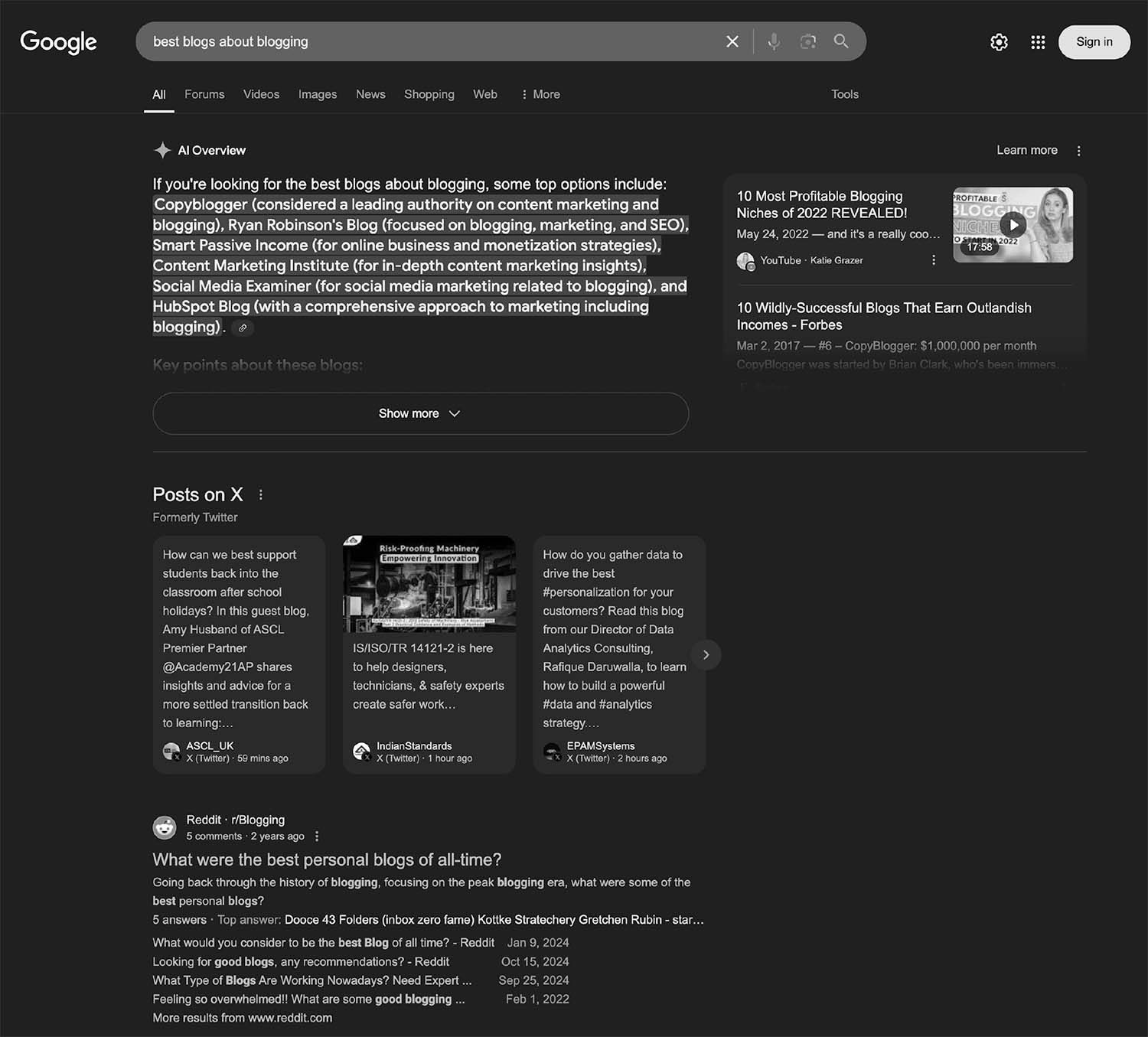Google's New Javascript Requirements Could Impact Bloggers
In January 2025, Google began requiring Javascript to access its search engine. The move is meant to fend off AI foes, but it will impact SEO for creators.

In January 2025, Google made a significant change to its search engine, requiring browsers and search bots to have Javascript enabled. The move is meant to combat generative AI models like ChatGPT and SEO tracking tools like Ahref or SEMRush, but it will impact content creators, too.
Now, when you visit Google, the page will not load properly unless your browser has Javascript running. This is no big deal for humans since, in the United States, for example, fewer than 2% of internet users have turned off Javascript.
Crawling Google Just Got Expensive
It is a big deal for bots.
In most respects, Google is the best search engine on the market. In fact, it is so good that web crawlers —often called bots— frequently use it to either track keyword phrases or search for information.
SEO Trackers
First, let's consider tracking. Search engine optimization (SEO) tools frequently review Google's search engine results pages (SERPs) to learn which websites are "ranking" for a given web query. So if someone visits Google and types in "best blogs about blogging," SEO tracking tools would want to know that AI provided an overall answer, three X posts took up the second position, and Reddit was the first "organic" result.

In the past, a relatively simple web crawler could extract the information directly from the SERP's HTML.
- The crawler visits the URL,
- copies the page content,
- parses the page,
- adds the result to a database,
- and, voilá, it is done.
Since Google began requiring Javascript, the process has become more complex.
- Visit the SERP URL,
- Copy the HTML and associated Javascript,
- Add the HTML and JS to a rendering queue,
- Render the page at the server,
- Capture the actual content,
- Parse the page content,
- Add the results to a database,
- Done.
The necessary computing power is a lot more, making it very expensive to monitor SERPs in real dollars and cents. It is very likely that SEO tools will no longer try to collect data on millions of individual keyword phrases. The cost would be too high.
Large Language Models
Artificial intelligence tools have the same problem as SEO tools. Large language models like ChatGPT, Claude, and even Perplexity have been known to "search" Google in order to train models and, frankly, learn from Google's massive web index.
As SEO guru Kevin Indig recently noted, AI is now Google Search's most significant search competitor.
"ChatGPT and Perplexity are gaining significant ground. ChatGPT has already surpassed the traffic of Bing and Google's Gemini. Perplexity is on the way there. However, LLM crawlers can't execute JS, which means they can now no longer crawl Google's search results to ground their answers," Indig wrote in a recent issue of his Growth Memo newsletter.
Three Creator Impacts
Thus, one could see Google's Javascript requirement as the beginning of a data-access battle between the search engine giant and its AI-first competitors.
If this trend continues, we can expect it to impact content creators —especially bloggers and newsletter authors— in at least three ways.
- Content SEO. Bloggers and newsletter authors often depend on search traffic. Where search traffic is important, SEO matters. And when SEO is involved, tools are essential. At the time of writing this paragraph, I personally pay $249 per month to use SEMRush. But I can already see a difference in tracking. Bloggers will have relatively less SEO information or will have to pay a lot more to compensate for more expensive tracking.
- AI Content. Many writers use AI for research, to generate article outlines, or even to draft content. It is possible that Google's Javascript requirement will make some of these tasks (perhaps AI research) more difficult.
- Multiple Platforms. Finally, it is worth noting that Google's search results frequently draw from X and Reddit. This may be an indication that bloggers need to add multiple publication platforms, posting on X (including X Articles and videos), publishing an email newsletter, and participating on Reddit.